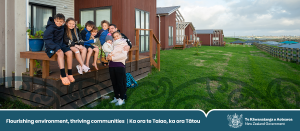Transition and Implementation
Link to recording: https://youtu.be/WkPlLoXg8AM
Link to presentation: November hui T&I 2022.pptxWe covered an overview of the proposed new system and comparison to the existing, key implications for hapū, iwi and Māori, initial thinking around funding participation, and regional decision making.
Discussion encompassed current and future challenges, transition pathways such as the first tranche of model regional implementation and readiness for delivery, digital transformation and capacity and training opportunities.
Key themes of the discussion also included:
- transitioning current RMA related Treaty settlements and agreements into the future system
- funding/resourcing available for hapū, iwi and Māori for implementation activities, including digital capabilities – a need to address rural areas with a lack of digital connectivity to ensure Māori communities can access, engage and enjoy the efficiencies digital pathways can offer
- inequity and lack of hapū, iwi and Māori participation – complexity being a key factor
- 1st tranche model plan implementation: which regions, potential impacts are there for hapū, iwi and Māori, funding/resourcing Māori
- recognising and empowering existing relationships
- the need for a ‘all of government’ approach to make the system work as intended for Māori
- ensuring the future system improves notification of hapū to address an imbalance in influence with regards to consenting.
|

 Hapū student nominations are open! Marine Kaitiaki Course 2024
Hapū student nominations are open! Marine Kaitiaki Course 2024